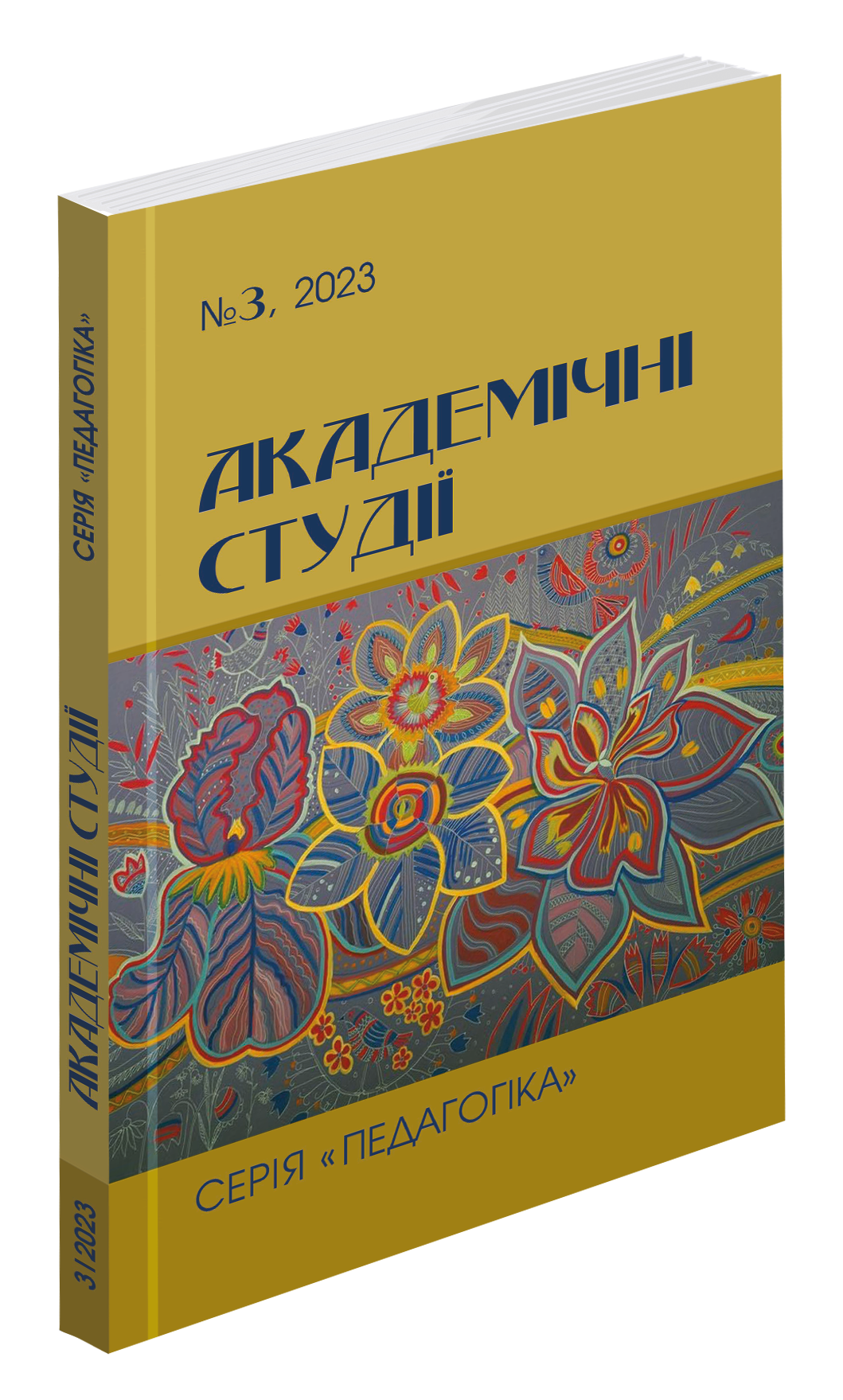Abstract
The article is devoted to examining the significance of the intercultural approach in the context of preparing future specialists in the field of arts, particularly in piano education in institutions of higher artistic education. An analysis of the concept of “intercultural education” is conducted using various pedagogical approaches, including comparative, communicative, competency-based, and cultural. It is emphasized that the definition of “intercultural education” should be adaptable to the specific context of each country, taking into account the peculiarities of its cultural development and educational needs. Attention is focused on the main contradictions that arise when considering the concept of “intercultural education,” particularly the tendency to equate it with other concepts such as “multicultural” and “transcultural” education. The necessity of refining and adapting these concepts to the domestic educational environment is emphasized. Based on an analysis of scientific works on interculturality in education, it is argued that the intercultural approach contributes to the development of intercultural communication skills, enabling artists to effectively collaborate with colleagues and audiences from different cultures. Intercultural education helps develop the artist’s personality, making them more open, tolerant, capable of engaging in cultural dialogue, and understanding others. Contemporary demands on artists encompass not only a high level of technical skills but also the ability to adapt to a changing cultural environment and incorporate it into their creative process. In conclusion, it is highlighted that the intercultural approach in the process of professional (piano) education in institutions of higher artistic education holds great significance for the development of future artists. It involves not only mastering artistic techniques but also considering various cultural, intercultural, and cross-national aspects, which enriches and expands the artistic perception and creative potential of future artists.
References
Абібулаєва Г. С. Деякі аспекти полікультурної освіти. Педагогіка і психологія. 2006. № 1. С. 75–84.
Гуренко О. І. Концепція полікультурної освіти майбутніх соціальних педагогів. Вісник Черкаського університету. Серія «Педагогічні науки». 2016. № 5. С. 48–55.
Дем’яненко Т. А., Кірсанова С. С. Полікультурна освіта як частина педагогічної культури викладачів вищих навчальних закладів. Pedagogika. Osiągnięcia naukowe, rozwój, propozycje : матеріали міжнародної науково-практичної конференції з нагоди 200-ліття Варшавського університету (м. Варшава, 29–30 вересня, 2016). Варшава, 2016. С. 47–51.
Кругленко Л. В. Концептуальні підходи до визначення поняття «полікультурна освіта» у вітчизняному педагогічному дискурсі. Педагогіка формування творчої особистості у вищій і загальноосвітній школах. 2019. № 66, Т. 1. С. 9–12.
Поясок Т. Б., Беспарточна О. І. Формування полікультурної компетентності майбутніх економістів. Engineering and Educational Technologies. 2019. № 7(1). С. 56–64.
Сива Ю. В.Аналіз основних підходів та провідних концептуальних ідей до визначення суті полікультурної освіти. URL: http://knowledge.allbest.ru/ pedagogics/2c0b65635a2ac68b4c43a89521216c27_0.html
Сокол М. О. Система педагогічних понять в історії розвитку педагогічної науки (ХІХ–ХХ ст). : автореф. дис. ... докт. пед. наук : 13.00.01. Дрогобич, 2018. 43 с.
Теорія і методика мистецької освіти: збірник науково-методичних статей / за ред. Ю. Ф. Дворника, О. В. Коваль. Ніжин : НДУ ім. М. Гоголя, 2019. Вип. 3. 261 с.
Пань Шен. Методичне забезпечення експериментального дослідження формування художньо-педагогічної освіченості майбутніх учителів музичного мистецтва Музична та хореографічна освіта в контексті культурного розвитку суспільства. Матеріали і тези VІІ Міжнародної конференції молодих учених та студентів (Одеса 04–05 жовтня 2021 р.). Т. 2. Одеса : ПНПУ імені К. Д. Ушинського, С. 26–28.

